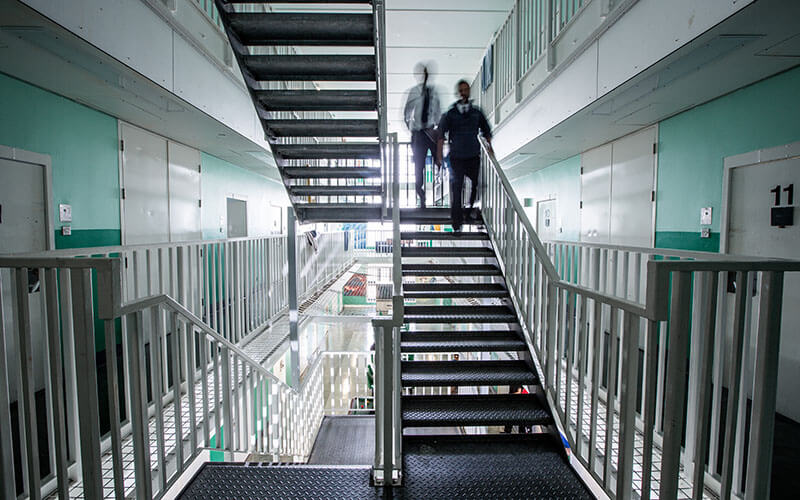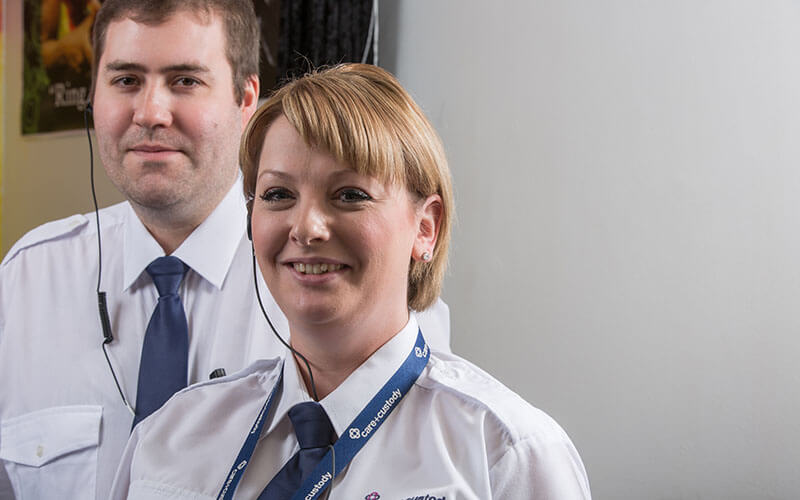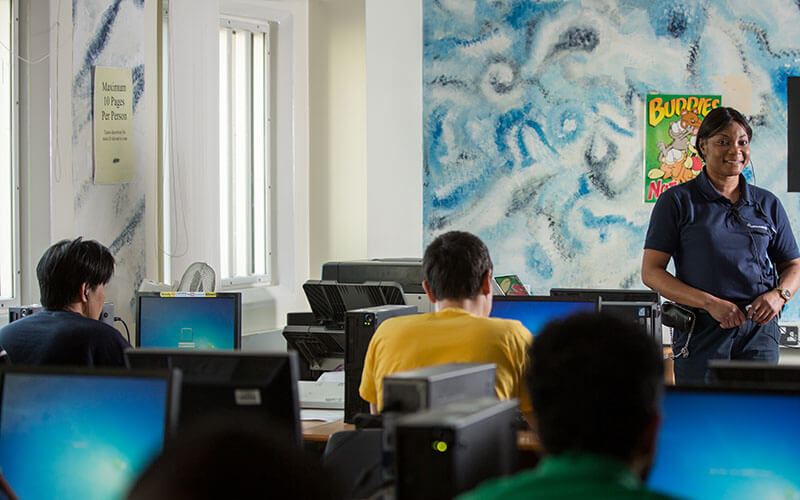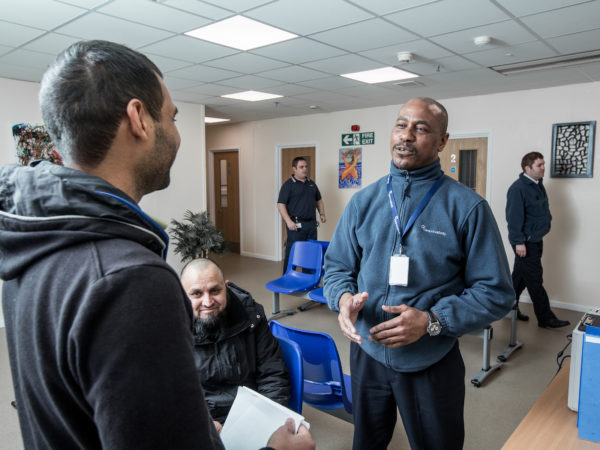How facilities management unlocks prisoner potential through the gate
Care & Custody’s Director of Business Development, Ben Saunders, shares insights on FM’s role in prisoner rehabilitation.

The days of transactional facilities management (FM) in prisons are long gone.
Prisoner-focused delivery is shaping the sector, with the Ministry of Justice (MoJ) confirming a reduction in reoffending is one of its three priority outcomes, while an MoJ whitepaper states: ‘Prisons cannot support rehabilitation unless they are safe, stable and secure.’
The link between the prison environment and reducing the likelihood of offenders returning couldn’t be clearer. And this is where the FM industry comes in.
“Whether delivering services in prisons, or running them on behalf of the MoJ, facilities management organisations must recognise the role they play in realising Government strategy.”
Whether delivering services in prisons, or running them on behalf of the MoJ, facilities management organisations must recognise the role they play in realising Government strategy.
Let’s take a look at some of the ways delivery can be enhanced to support prisoner rehabilitation.

Comfort, health and wellbeing
The full potential of smart technology has yet to be realised in prisons – and FM can lead the way. Through remote monitoring of assets, such as boilers, an alert is generated when performance anomalies are recorded, preventing downtime, reducing repair costs and extending asset lifetime. Keeping prison equipment operational ensures prisoner comfort is not compromised.
Similarly, in large and aging prison buildings with multiple water taps, remote monitoring can determine those being used the least. Regulations demand these taps are flushed to avoid risk of Legionella. With smart data reports, colleagues can save time by only flushing out specific taps, which also reduces water wastage. This safeguards prisoner health and wellbeing.
Data at the touch of a button
“Issuing prison officers and / or FM colleagues with connected handheld devices puts data at their fingertips.”
Issuing prison officers and / or FM colleagues with connected handheld devices puts data at their fingertips. Not only can they access work rosters, prisoner sentences, learning and resettlement plans and adjudications, but also record job completions and essential fabric checks. For example, under prison regulations, every room must be assessed daily to ensure they remain in good repair. Such checks can be recorded on handhelds, eliminating the traditional paper trail that increases the chance of human error, while hosting data on a single, easy-to-use platform. This reduces time-zapping admin, leaving prison colleagues free to devote more time to those in their care.

Rich space usage analytics
Biometric technology has huge potential in the prison environment. For example, fingerprint readers can capture whether individuals with protected characteristics have difficulty availing of amenities that should be open to all. Appropriate interventions can be taken, if necessary, thus ensuring prisons remain accommodating to the entire prison population.
A step up the career ladder
FM organisations boast a wealth of job skills. This bank of talent is an untapped resource that can be exploited to the benefit of prisoners. Suitable candidates can complete work experience in areas such as painting and decorating, cleaning and landscaping to improve their prospects in the outside world. FM partners should also facilitate Release on Temporary Licence (ROTL) work experience in the community, further enhancing employability. Guaranteed job interviews can be offered to the most promising individuals for posts to be started upon release.
Mastering the three Rs and more
Often prisoners struggle with numeracy and literacy. Addressing this requires a multi-disciplinary partnership approach, with input from FM organisations, prison Learning and Skills departments and charities. The MoJ is focused on establishing individual prisoner learning plans, which may include tutoring or assistance with professional skills, such as CV writing, job applications and interviews. The Mitie Foundation charity’s Ready2Work Beyond Bars scheme already assists prisoners in this way. There is much to be gained: 86% of employers rate ex-offenders as good at their job.

A confidence boost
Serving a jail term can negatively impact confidence. Many prisoners are sensitive to the negative stereotypes associated with a conviction and just 17% of ex-offenders manage to get a job within a year of their release. Colleagues working in prisons and FM organisations involved in prison delivery have a role in challenging such stereotypes and ensuring prisoners know they have purpose, value and something to contribute.
Towards new and purposeful lives together
Prisoner-focused delivery yields psychological, financial and social benefits for the individual, as well as considerable social value for the wider community. Organisations also have much to gain from the skills and dedication prison leavers bring to the workplace; over 80% of employers of ex-offenders have positively rated their reliability, motivation, attendance and performance.
“Over 80% of employers of ex-offenders have positively rated their reliability, motivation, attendance and performance.”
The most recent MoJ figures put reoffending costs at approximately £18.1bn per year. By reducing return prison visits, society benefits both from reformed lives and through an easing of the strain on the public purse.
Some businesses may be reluctant to welcome people with convictions. However, working with a facilities management partner, which employs former offenders directly and therefore remains responsible for their performance and wellbeing, means the negligible risk of problems is borne by the FM provider.
Prison leaver and community benefits aside, the growing social value component of MoJ tenders means there is sound business rationale behind tailoring FM delivery in prisons to new and purposeful lives through the gate.
Ben is a former social worker with 25 years’ experience in justice and immigration. He is passionate about improving lives and public services delivery.
Read next
Mitie announced as three-time award winner for its diversity and inclusion initiatives
Mitie has been named the winner in two categories, ‘Best Diversity, Equality and Inclusion Initiative’ and ‘Best Learning Initiative for Business Culture’, at the Business Culture Awards 2021 Both awards recognise Mitie’s bespoke ‘Count…
Mitie Care & Custody awarded 2-year contract to manage new immigration removal centre for women on behalf of the Home Office
Replacing Yarl’s Wood as the main IRC for detained women, the services provided are based upon the current best practices for IRCs and provide increased staffing levels, improved use of modern technology within the…

Home Office: Heathrow Immigration Removal Centre
We’ve established a unified, positive culture and this contract has confirmed our role as a strategic partner to the Home Office.